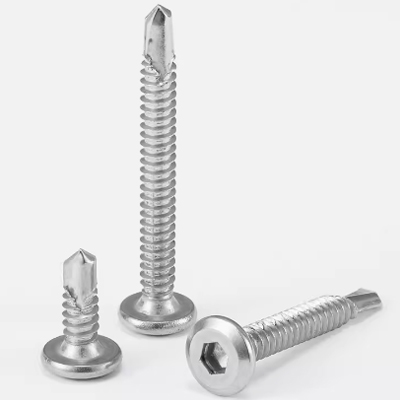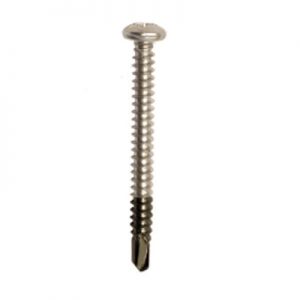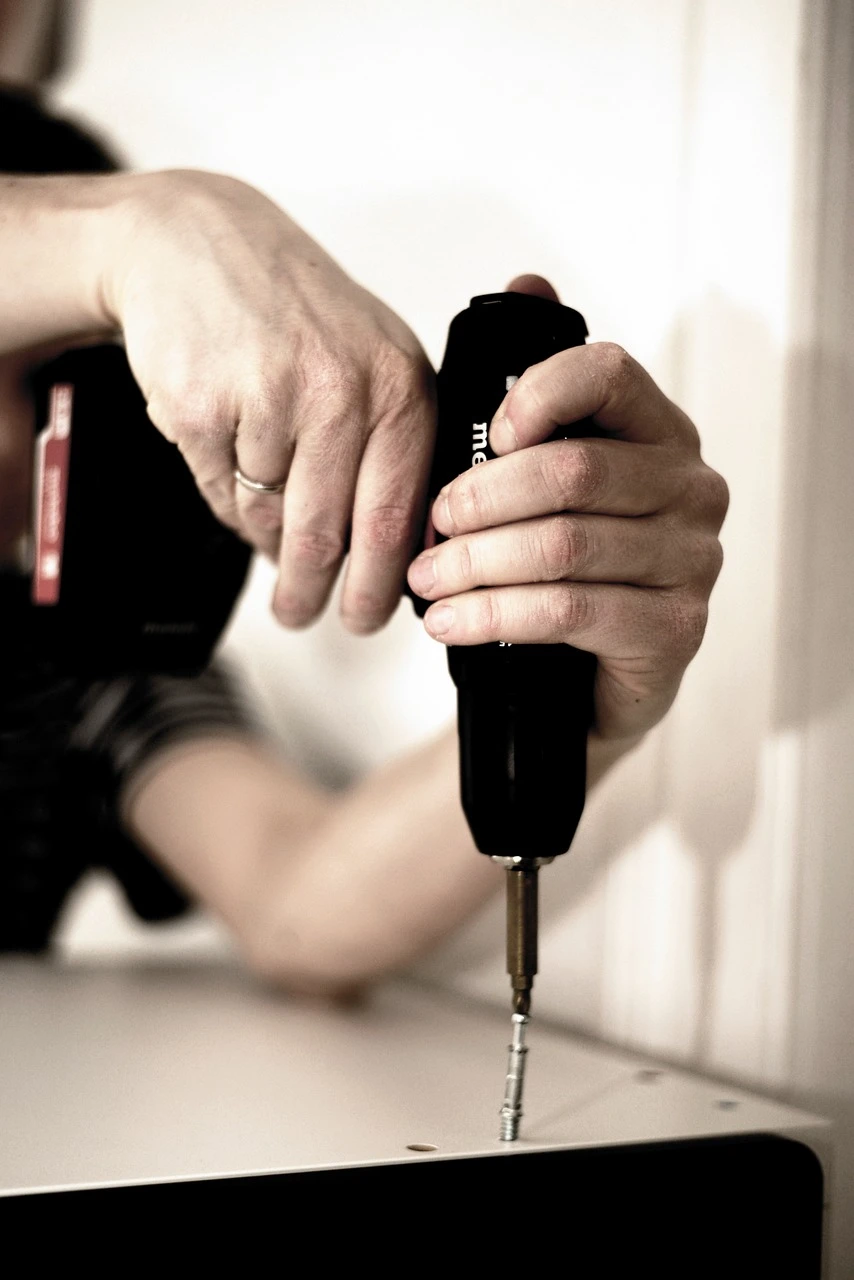caTEGORIES
Tags
Essential Factors When Selecting Drill Screws for Various Applications

Posted: August 08, 2024
Categories: News
Tags: news
Understanding Drill Screws and Their Importance
Purpose of Drill Screws
Drill screws play an essential role in numerous construction and manufacturing tasks. These screws are engineered to penetrate materials like wood, metal, and composites directly, eliminating the need for pre-drilling. This feature accelerates assembly times and cuts down on labor expenses. Their self-drilling nature makes them exceptionally effective for fastening in various industries. Using drill screws guarantees robust and dependable joints capable of enduring different stresses and environmental conditions.
Common Types of Drill Screws
There are multiple types of drill screws designed to cater to different applications. Self-tapping screws are widely used for joining softer materials like wood and plastic, whereas self-drilling screws are better suited for harder materials like metal. Concrete screws, also known as masonry screws, are designed to anchor objects into concrete walls and floors. Each type has specific features tailored to enhance its performance in the intended application, including thread design, material composition, and coating.
Basic Components of a Drill Screw
Drill screws are composed of several key components including the head, shank, thread, and drill tip. The head is the top portion, which is often designed to accommodate various drive types such as Phillips or slotted. The shank is the middle portion that connects the head to the drill tip and can vary in length and diameter. The thread is the helical structure wrapped around the shank that helps the screw bind into the material. Finally, the drill tip is the pointed end that initiates the drilling process, eliminating the need for a pilot hole.
Qewitco Fasteners Co., Ltd. stands out as a premier supplier in this domain, offering a diverse range of high-quality fasteners and fixings that cater to various industrial needs.
Founded in 2004, Qewitco has persistently focused on producing and trading high-quality, reliable products. The company’s operational principles, which are deeply influenced by its former British owners and directors, have been crucial in managing the supply chain of industrial consumable goods from mainland China and neighboring countries such as Taiwan, Malaysia, Vietnam, and Thailand. This combination of Western business expertise and Far Eastern values enables Qewitco to provide outstanding products and services to its international customers.
Qewitco’s competitive product range includes fasteners of general grade, high grade, and those made from brass/copper, stainless steel, aluminum, and various alloys. The provision of test certificates, coupled with rigorous professional quality control and traceability, underscores the company’s unwavering commitment to excellence.
Material Compatibility
Steel vs. Aluminum: Which to Choose?
Choosing between steel and aluminum drill screws depends on the specific requirements of the material and the application. Steel screws offer higher tensile strength and durability, making them ideal for heavy-duty applications, particularly in metalwork and construction. On the other hand, aluminum screws are lighter and more resistant to corrosion, making them suitable for applications where weight and environmental resistance are critical factors. Each material has its pros and cons, and the choice should be guided by the application’s needs.
Impact of Wood Type on Drill Screw Selection
When working with wood, the choice of drill screws is heavily influenced by the type of wood being used. For hardwoods such as oak and maple, it is essential to use robust, longer screws with deeper threads to achieve a secure grip. On the other hand, softwoods like pine typically require shorter screws with shallower threads. Using the correct screw type is vital for ensuring the joint’s longevity and minimizing the risk of material splitting or screw failure. Matching the screw type and thread design to the wood’s hardness and density is crucial for optimal performance.
Compatibility with Composite Materials
Composite materials like plywood, particleboard, and fiberboard have different characteristics from traditional wood or metal. Drill screws used with composites often need specialized threads to reduce the risk of splitting and to provide a strong hold. Moreover, screws for composites usually have a larger diameter to distribute the load more evenly across the material. This ensures that the screws hold firmly without causing damage to the composite material, thereby enhancing the durability of the assembly.
Length and Diameter Considerations
Determining the Appropriate Length
Selecting the right length of drill screws is vital to the success of a project. The length should be long enough to penetrate both the materials being fastened together but not excessively long to protrude unnecessarily. Factors like the thickness of the materials and the depth of the pilot holes, if needed, influence the length selection. Overly short screws fail to provide adequate holding power, while excessively long screws may cause damage to the materials.
Factors Influencing Length Selection
Several factors can influence the length of drill screws required for a specific application. These include the thickness of the materials being joined, the type of materials, and any additional material layers like insulations or coatings. By considering these factors, one ensures that the selected screw offers optimal performance without jeopardizing the integrity of the materials. Measuring the total thickness of the materials and selecting a screw that exceeds this combined thickness is key to a secure connection.
Importance of Diameter in Different Applications
The diameter of drill screws is just as important as their length. The diameter of a screw influences its holding power and the type of material it can effectively penetrate. Screws with larger diameters offer better holding strength, making them ideal for heavy loads and harder materials. On the other hand, screws with smaller diameters are more suitable for delicate or lightweight applications. Selecting the appropriate diameter ensures that the screw does not compromise the material’s integrity while providing the necessary strength.
Drive Types and Heads
Common Drive Types: Phillips, Slotted, and More
Drill screws come with various drive types, each suited for different applications. Phillips drives are the most common and provide good torque control, making them ideal for general purposes. Slotted drives, although more traditional, are easier to strip and are best suited for lighter applications. Other drives such as Torx and square drives offer better torque and reduced cam-out, making them suitable for industrial and heavy-duty applications. The choice of drive type can significantly affect the ease of installation and the durability of the connection.
Head Styles: Flat, Pan, and Hex Heads
The head style of drill screws affects the screw’s aesthetics and functionality. Flat heads are designed to sit flush with the material’s surface, making them ideal for applications requiring a smooth finish. Pan heads, which protrude slightly above the material, are better for situations where a higher clamping force is required. Hex heads provide excellent torque and are easier to grip with wrenches or sockets, making them suitable for heavy-duty applications. Selecting the right head style ensures both practical and visual satisfaction in the final assembly.
Specialized Drill Screws
Self-Tapping vs. Self-Drilling Screws
When it comes to specialized drill screws, understanding the distinction between self-tapping and self-drilling screws is essential. Self-tapping screws are designed to create their own threads as they are driven into the material. They are particularly effective for softer materials like wood and plastic. These screws eliminate the need for a pre-tapped hole, saving time in the assembly process. On the other hand, self-drilling screws come with a drill bit tip that allows them to penetrate harder materials like metal and concrete without the necessity of a pre-drilled hole. The main advantage of self-drilling screws is their efficiency in heavy-duty applications, offering both drilling and fastening in a single operation.

Coated vs. Uncoated Screw Varieties
Deciding whether to use coated or uncoated drill screws primarily hinges on the environmental conditions and the specific application needs. Coated screws are enhanced with various materials to boost their durability and resistance to factors such as moisture and chemicals. Common coatings include zinc, phosphate, and ceramic, each offering different levels of protection and visual appeal. On the other hand, uncoated screws are generally less resistant to corrosion but are often more cost-effective, making them suitable for indoor applications or environments with minimal exposure to corrosive elements. Assessing the project’s specific requirements is crucial in determining if the extra expense of coated screws is warranted.
Corrosion Resistance and Durability
Importance of Coating for Corrosion Resistance
The significance of coating in drill screws cannot be overstated, particularly in applications exposed to harsh environments. Coatings such as galvanized zinc or stainless steel not only enhance the screw’s longevity but also provide a barrier against rust and corrosion. This is crucial in maintaining the structural integrity of the assembly over time. An uncoated screw might corrode quickly in damp or corrosive conditions, compromising the joint’s effectiveness. Therefore, selecting coated screws for exterior or industrial applications ensures long-term reliability and durability.
Selecting Durable Materials for Longevity
Material selection plays a pivotal role in the durability of drill screws. Steel screws, especially those made from hardened or stainless steel, offer excellent tensile strength and durability. These materials are ideal for industrial and heavy-duty applications where screws are subjected to significant stress. Alternatively, aluminum screws, while not as strong as steel, provide excellent resistance to corrosion and are much lighter. This makes them suitable for applications where weight is a critical factor. Understanding the specific demands of the project helps in choosing a material that ensures both strength and longevity.
Application-Specific Recommendations
Industrial Use Cases
Heavy-Duty Requirements
For heavy-duty industrial applications, drill screws need to possess superior strength and durability. These screws are often used in the construction of metal buildings, machinery, and large-scale infrastructure. Self-drilling screws with hardened steel and robust coatings are preferred due to their ability to penetrate tough materials and resist environmental wear. Ensuring the screws have the appropriate thread design for the material, along with selecting a size that can handle significant loads, is crucial for maintaining the structural integrity of the assembly.
Light-Duty Requirements
Industrial applications that necessitate light-duty fastening can benefit greatly from using drill screws that provide a balance between strength and ease of installation. In such scenarios, self-tapping screws are often employed, especially when dealing with softer materials such as plastic or composite panels. The selection of these screws should prioritize quick installation and dependable performance under moderate stress conditions. To ensure a secure fit without unnecessary complications, it is crucial to match the screw’s thread and length accurately to the thickness of the material being used.
Residential Use Cases
Indoor Applications
In residential indoor applications, drill screws are widely utilized for tasks ranging from furniture assembly to attaching fixtures. Here, the primary considerations include the screw’s size, drive type, and aesthetic requirements. Coated screws may not be as critical indoors, but choosing a screw that matches the color and finish of the material can enhance the visual appeal. Additionally, self-tapping screws are often preferred for wood and drywall tasks, ensuring quick and secure installation without the need for pre-drilling.
Outdoor Applications
Outdoor residential applications demand drill screws that can withstand exposure to the elements. Coated screws, particularly those with weather-resistant finishes like galvanized zinc, are essential. These screws are used in projects such as deck building, fencing, and outdoor furniture where moisture and temperature fluctuations could cause uncoated screws to fail prematurely. Ensuring that the screws are long enough to provide a strong grip in often-treated outdoor woods further contributes to the project’s longevity and safety.
Tips for Proper Installation

Correct Torque Settings
Achieving the proper torque setting when installing drill screws is crucial to prevent over-tightening or under-tightening, both of which can compromise the integrity of the joint. Over-tightening can strip the threads or break the screw, whereas under-tightening can result in a loose connection. Using a torque wrench or a drill with adjustable torque settings ensures that the screws are tightened to the manufacturer’s recommendations, enhancing the reliability and durability of the assembly.
Pre-Drilling Considerations
While many drill screws are crafted to eliminate the need for pre-drilling, there are circumstances where pre-drilling proves advantageous. For example, when dealing with very hard or thick materials, a pilot hole can help prevent the screw from wandering and ensure a straight, clean entry. Additionally, it minimizes the risk of splitting when fastening into delicate materials. Evaluating the material’s properties and the specific demands of the project will determine whether pre-drilling is necessary.
Maintenance and Inspection for Longevity
Proper maintenance and regular inspection are key to ensuring the longevity of installations utilizing drill screws. Periodic checks for corrosion, loosening, and wear can prevent minor issues from escalating into major faults. This is particularly important in structures exposed to environmental elements. Rust treatments, re-tightening, and replacing worn-out screws are part of a proactive maintenance routine that extends the life of the assembly and ensures ongoing safety and performance.
By considering these essential factors when selecting drill screws for various applications, one ensures optimal performance and longevity. Each project’s specific requirements, environmental conditions, and the materials involved will guide the best choice of screws, promoting both efficiency and durability in construction and manufacturing processes.
Proper fastening practices involve using the right techniques and high-quality fasteners to ensure the reliability and longevity of an assembly. Over-tightening fasteners can result in numerous adverse effects, including structural damage, reduced load-bearing capacity, and material deformation. For machinery and equipment, the implications include increased wear and tear, potential component failure, and higher long-term maintenance costs. Incorporating robust products from trusted suppliers like Qewitco Fasteners Co., Ltd. can significantly mitigate these risks and ensure the lasting performance of your assemblies.
Companies such as Qewitco Fasteners Co., Ltd. play a pivotal role in this process by supplying high-quality fasteners that meet stringent quality control standards. Their commitment to excellence ensures that the fasteners used in industrial applications can uphold the structural and functional demands placed upon them. As such, combining robust products with precise fastening techniques enables industries to strike the delicate balance between over-tightening and under-tightening, promoting both safety and efficiency.


